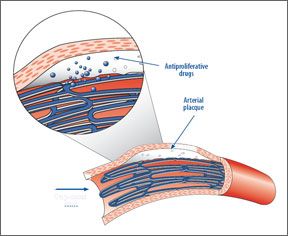More than one million people each year undergo angioplasty, a non-invasive medical procedure to open up blocked arteries in the heart. In most cases, a small piece of wire mesh called a stent is inserted in the artery to help keep it open. Stents come in two forms: bare metal, or coated with drugs designed to keep the arteries from re-clogging. About a year ago, a debate erupted in the medical community over the safety of drug-eluting stents, after research presented at the 2006 American College of Cardiology and European Society of Cardiology meetings found that these stents significantly increase the risk of blood clots and subsequent heart attacks. The concern over drug-eluting stents became so intense that one cable news network referred to these devices as "tiny time bombs" that "kill 2,000 Americans a year."
To continue reading this article or issue you must be a paid subscriber.
Sign in






